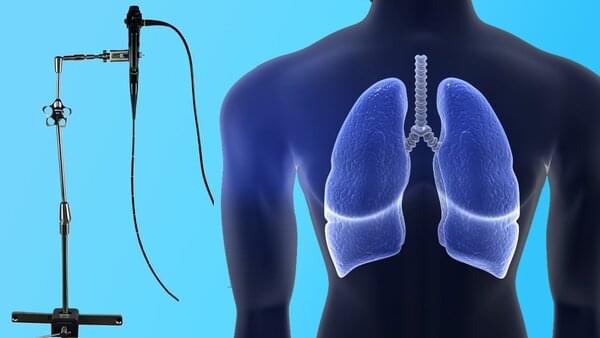Australia’s National Lung Cancer Screening Program Launched
Published on August 1, 2025

The National Lung Cancer Screening Program was launched on 1 July 2025 to support earlier detection and diagnosis of lung cancer. The program involves the assessment of high-risk individuals using low-dose CT imaging to identify early signs of the disease. The scheme is open to people aged between 50 and 70 years who show no signs or symptoms of lung cancer (that is, they are asymptomatic). Eligibility also includes those who currently smoke or have quit smoking within the past 10 years, as well as individuals in this age group with a history of smoking at least 30 pack-years. A pack-year is calculated by multiplying the number of cigarette packs smoked per day by the number of years the person has smoked.i
Why Early Detection Matters in Lung Cancer Care
The primary aim of the National Lung Cancer Screening Program is to improve early detection, supporting earlier intervention and offering more treatment options. When identified at stage 1, lung cancer can sometimes be treated with surgery to remove the tumour, depending on individual clinical circumstances. Despite this, only an estimated 11% of cases in Australia are currently diagnosed at this early stage.ii
By contrast, late-stage diagnosis often indicates that the cancer has already metastasised, limiting treatment options and shifting the clinical focus toward managing disease progression and maintaining quality of life. Approximately 42% of cases are diagnosed in stage IV.ii
With lung cancer being the fifth most common cancer in Australia, approximately 26% of individuals diagnosed are estimated to survive at least five years following diagnosis.iii The ultimate goal of the program is to increase the proportion of lung cancer cases detected in stage 1 from 16% to 60%. Consequently, the screening program aims to reduce stage 4 diagnoses from 53% to 11%.i
Preparing for implementation
Providing a potentially life-changing opportunity for individuals across the country, the National Lung Cancer Screening Program was the topic of a recent podcast by ABC Radio National. Norman Swan and Dr Preeya Alexander discussed whether the healthcare infrastructure was ready to deliver the scheme, speaking to Professor Alvin Ing, Respiratory Medicine at Macquarie University, who shared what patients may expect throughout the testing workflow.
ABC Radio National – Health Report: Are we ready for the lung cancer screening program?
He also referenced the Pulmonary Nodule Workshop at Macquary University, the Australia’s first national masterclass aimed at supporting clinicians ahead of the National Lung Cancer Screening Program. The two-day event offered hands-on training in advanced techniques such as CBCT-guided and robotic bronchoscopy to aid in the diagnosis of small or difficult-to-reach lung nodules.iv
The Role of Advanced Bronchoscopy in Lung Cancer Diagnosis
Bronchoscopy procedures have advanced in recent years to support the diagnosis of lung cancer. Research indicates that this technology is a safe and accurate method for evaluating both the central and distal airway mucosa. There is also evidence that navigational bronchoscopy is useful for assessing small peripheral lung lesions when appropriate cases are selected. This is particularly beneficial for the detection of early-stage lung cancer.v
Developments in imaging-guided biopsy techniques, such as those introduced at Macquarie University Hospital, are also contributing to more accessible diagnosis of small or difficult-to-reach nodules. In the past, patients with these types of nodules often had limited options such as waiting for them to grow or undergoing surgery without a confirmed diagnosis. Innovations like robotic and CBCT-guided bronchoscopy are now improving biopsy accuracy and enabling earlier, safer diagnosis, helping clinicians determine appropriate care pathways sooner.vi
The key to effective implementation of this procedure relies on maintaining stability throughout the intervention, streamlining clinical workflow, supporting procedural accuracy, and reducing the need for additional assistance or staffing. Technologies that enable these elements play an important role in supporting interventional pulmonologists with consistent procedural performance. The Mediflex Bronchoscope Stabilisation System (BSS), available from Getz Healthcare in Australia, is such medical device, designed to assist clinicians in performing bronchoscopy procedures with greater precision and efficiency. It can be used across a range of procedures, including Electromagnetic Navigation Bronchoscopy (ENB), Radial Endobronchial Ultrasound (rEBUS), and Cone Beam Computed Tomography (CBCT).
What National Screening Could Mean for Patients
The National Lung Cancer Screening Program is being introduced progressively across Australia, providing an opportunity to evaluate its effectiveness and refine its implementation. It marks a significant step forward in the early detection and treatment of lung cancer, with the potential to improve patient outcomes and support timely care.
iAustralian Government Department of Health and Aged Care. National Lung Cancer Screening Program – Eligibility Criteria. 2024.
iiCancer Australia. Report on the Lung Cancer Screening Enquiry. Cancer Australia, Surry Hills, NSW; 2020. ISBN 9781741273564.
iiiCancer Australia. Lung Cancer Statistics. Accessed July 2025.
ivMacquarie University. New lung biopsy procedure revolutionises cancer diagnosis process. Lighthouse (University news), June 2024.
vRivera MP, Mehta AC, Wahidi MM. Establishing the Diagnosis of Lung Cancer: Diagnosis and Management of Lung Cancer, 3rd ed: American College of Chest Physicians Evidence-Based Clinical Practice Guidelines. Chest. 2013.
viMacquarie University. Workshop paves the way for lung cancer screening. Faculty of Medicine, Health and Human Sciences News, Macquarie University; 8 April 2025.
Getz Healthcare is proud to be recognized as the leading distributor of medical equipment, devices and consumables, in Asia Pacific.
Our full-service distribution capabilities provide end-to-end representation of our business partners’ products, while delivering comprehensive service and solutions to our customers in all the countries we serve. Learn more
All product information listed on this site are for healthcare professionals only. Descriptions and specifications of the products listed on this site are provided by the manufacturer.